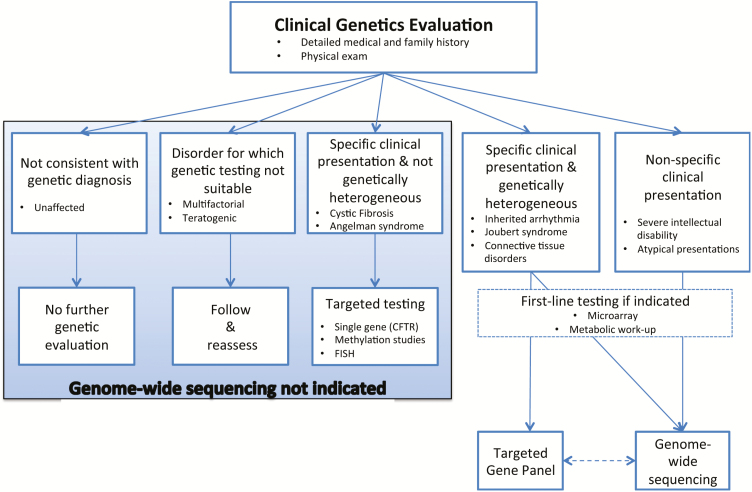Figure 1.
Decision aid to facilitate the diagnostic evaluation of patients with rare disease of suspected monogenic aetiology. This decision aid highlights where genome-wide sequencing may prove useful in the evaluation process. The conditions listed in each box are representative examples only. For specific clinical presentations associated with genetic heterogeneity, the decision regarding the use of a targeted panel versus genome-wide sequencing is dependent on a number of factors, including the availability of the testing options and the yield of such panels. Patients with negative targeted gene panels may benefit from subsequent clinical genome-wide sequencing. Conversely, consideration of a targeted panel subsequent to uninformative clinical genome-wide sequencing would be dependent on the depth of coverage achieved in the latter instance. NB: Fluorescence in situ Hybridization has now been replaced by multiplex ligation-dependent probe amplification in many centres. Reproduced with permission from ref. (4).

